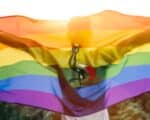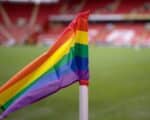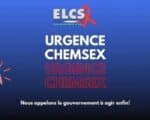>> Twitter Bans On-Site Blood Drives As Long As Gay, Bisexual Employees Can’t Participate
[spacer]
Le géant américain des réseaux sociaux a décidé de ne plus héberger de collectes de sang à son siège, à San Francisco, depuis qu’un de ses employés a été écarté du don, en raison de son orientation sexuelle. C’est ce qu’a déclaré mercredi dernier Brian Schipper, vice-président de Twitter en charge des Ressources humaines, dans une interview à l’International Business Times, un journal en ligne économique : « Nous avons choisi de canaliser nos efforts sur la question jusqu’à ce que la ‘Food and Drug Administration’, l’agence américaine des produits alimentaires et médicamenteux, révise ses critères d’exclusion. »
Les États-Unis continuent en effet d’interdire le don du sang aux homosexuels et bisexuels masculins en se basant depuis des décennies sur une « plus forte présence statistique du VIH dans cette population ».
Twitter entend ainsi protester contre une politique jugée discriminatoire et sans justification scientifique, fondée sur la notion de « population à risque » et non pas de « comportements à risque », comme le déplore Jim Halloran, gestionnaire de contenu global du réseau social.
Mais si les révélations sont récentes et font suite à la nomination par Human Rights Campaign de Twitter en tant qu’entreprise bénéficiant du meilleur environnement de travail inclusif pour les LGBT, la compagnie réclame un alignement des conditions du don de sang, peu importe l’orientation sexuelle du donneur, depuis le mois d’avril dernier, date de l’incident. Colin Crowell, le vice-président de Twitter avait d’ailleurs déjà adressé une lettre à la FDA, pour l’exhorter à reconsidérer son règlement.
Une décision « audacieuse et engagée » selon le magazine Advocate, qui espère que cette initiative inspire d’autres entreprises américaines, habituellement sensibles aux droits des LGBT.
L’Agence américaine des médicaments a toutefois recommandé en décembre 2014 la levée de l’interdiction permanente par un ajournement temporaire mais sous conditions, comme c’est aussi le cas en France : « ne pas avoir eu de rapports avec un partenaire, protégé ou non, au cours des douze derniers mois précédant le don ». S’il s’agit indéniablement d’une avancée, rappelons que cette réforme qui devrait entrer en vigueur dès le printemps 2016 en France, ne met pas pour autant un terme à la stigmatisation face au don.
Terrence Katchadourian
stophomophobie.org
[spacer]
>> Twitter has taken heat for its lack of racial diversity, but it has taken a stand in support of its LGBT employees by ending on-site blood drives until the Federal Drug Administration lifts a decades-old ban that prevents healthy gay and bisexual employees from participating.
Since 1983, the FDA has prevented men who have had sexual relations with other men to donate blood. The policy was put in place in response to the nation community’s AIDS crises in the 1980s, but more recently, that policy has been criticized for being unnecessary and discriminatory.
“These are the only policies that the FDA has based on a person’s identification and not any type of risky behavior that they’re engaged in,” said Jim Halloran, Twitter’s Associate Manager of Sales Operations and President of TwitterOpen, Twitter’s LGBT employee resource group. “Twitter took a very bold stance.”
Twitter decided to take a stand against this policy after a gay employee was turned away from a blood drive being held at its headquarters. That employee filed a complaint with human resources and Twitter decided to no longer host blood drives onsite after April 2015, the company told the International Business Times on Wednesday.
« We made the choice to take a company stand against some of our employees being turned away from donating blood and will channel our efforts into education about this issue until this unnecessary and discriminatory policy is changed, » said Brian “Skip” Schipper, Twitter’s Vice President of Human Resources and the Executive Sponsor of TwitterOpen.
Twitter shared the news after being named one of the « Best Places to Work for LGBT Equality » by the Human Rights Campaign on Wednesday, an indication that could help the company in recruiting talented candidates from the LGBT community. Besides boycotting blood drives, Twitter has also filed a public comment with the FDA. TwitterOpen has also promoted a petition to “stop discriminating and screen male blood donors equally.”
Though the FDA proposed altering the lifetime ban to allow gay and bisexual men who have abstained from sex with another men for at least 12 months to donate blood, Twitter plans to continue boycotting until the restriction is completely removed and replaced by one determined by risky behavior not sexual identity.
“We strongly urge the FDA to reconsider this draft rule, remove the restrictions on donations from MSM [men who have sex with men], and redraft safety regulations that are based on legitimate behavioral risk factors,” said Colin Crowell, Twitter’s Vice President of Global Policy, in a letter submitted to the FDA in July.
The FDA said it “has been carefully reviewing and considering all comments in finalizing the guidance” for the change to its policy on gay and bisexual men. The agency has not committed to a specific timeline for when the change may go into effect.
The Human Rights Campaign, an LGBT civil rights advocacy group, and others argue that research shows that three month deferral is adequate time to protect the blood supply. According to the National Institute of Health, that is the amount of time it takes for HIV antibodies to be detected by a test.
“We want our blood supply to be safe, and the good news is that the science shows we can have a safe blood supply without having a discriminatory policy,” said David Stacy, government affairs director at Human Rights Campaign. “The terrible thing is when a gay man goes to give blood and suddenly is told ‘We’re not accepting your blood.’ That can be really hurtful.”
Stacy said that to his knowledge, Twitter is the only public tech company to publicly take a stand against the FDA’s policy. Having a major company like Twitter boycott the FDA’s practices is helpful, as it draws attention to the issue.
“There are times when there is a shortage of blood and it is very important that people who can donate [do] donate,” Stacy said. “But right now in the U.S., there is an ample supply of blood, so people taking a stance makes sense.”
In August, Twitter disclosed that its workforce is 34 percent women, four percent Hispanic and just 2 percent African-American. The company has not previously disclosed how many of its employees are LGBT, but its stance on the FDA policy was commended by members of that community.
Twitter is looking at how it can use its influence “to really make sure that we’re making the best decisions for our employees, helping them out not only inside the office but in the life that they’re leading outside the four walls as well,” Halloran said.
















